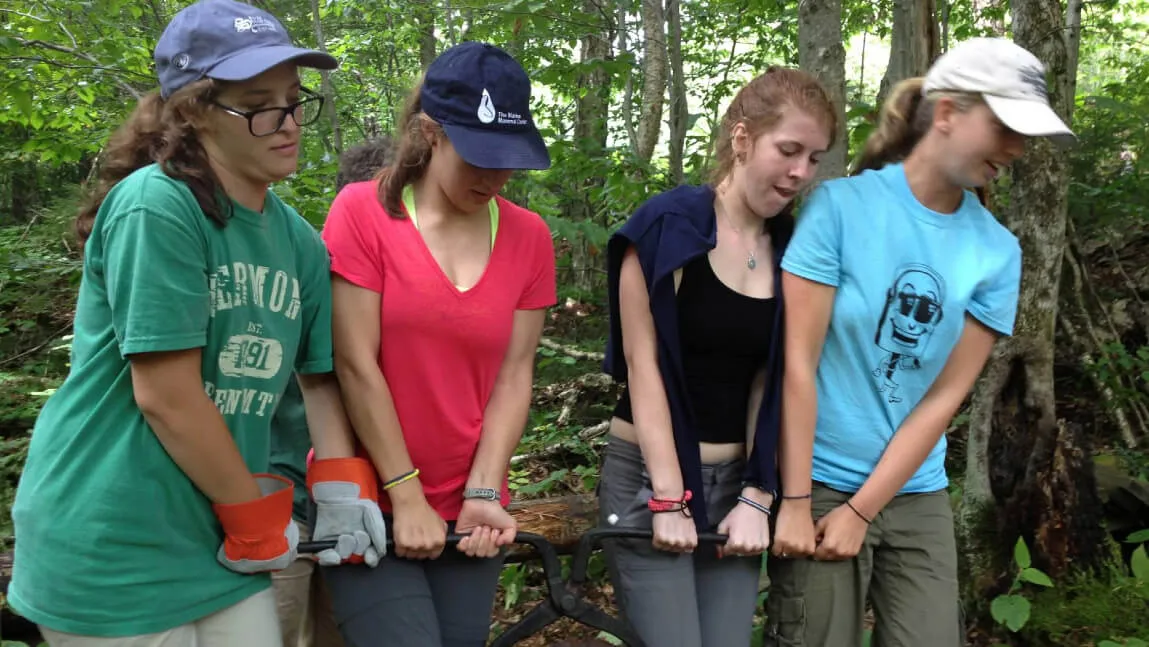Beginning next summer, 25 juniors from three UVM colleges will be working on environmental restoration projects with Vermont Audubon and the Vermont Youth Conservation Corps (VYCC).
The summer jobs represent one step in a new year-long program called “The Fellowship in Restoration Ecologies and Cultures: Training Leaders for the Green Work Force,” funded by a $40,000 grant from the Henry David Thoreau Foundation.
The proposal was developed by Professor of Geography Cheryl Morse and Rubenstein School of Environment and Natural Resources Senior Lecturer Amy Seidl, who have taught courses related to the environment for a collective 25 years. Each scholar brings a different area of expertise to the table—for Morse it’s working landscapes, place and identity; for Seidl it is sustainability science, ecology and restoration.
“We see a strong connection between the interests of our students and the interests of our environmental partners in the state,“ said Seidl. “Developing skilled individuals who are knowledgeable about the importance of restoration and the need for resilient landscapes in the age of climate change was really a sweet spot for collaboration.”
The first cohort of students—all of whom are studying the environment at UVM—has been recruited. They will take a pair of four-credit field courses beginning with Seidl‘s “Landscape Restoration and Leadership” class, which includes restoration ecology learning in UVM’s natural areas. In the spring 2023 semester, Morse will present “Community Conservation and Collaboration” which introduces students to community and place-based approaches to restoration and conservation. During the summer they'll work with Audubon or VYCC staff building or restoring trails, planting trees to create riparian buffers, or removing invasive plants. Students will finalize their engagement with a Fellowship capstone commitment in their senior year.
“The idea is to prep students in field-based class experiences where they develop some hands-on skills, then apply for restoration crew jobs,” explained Morse. “When they come back for their senior year, they’ll have a capstone experience which might be an internship, or a teaching assistant position with us, or an independent research project.”
Over the span of the program, UVM student fellows receive hands-on field experience, classroom theory and research opportunities, and a capstone that opens a new pipeline of graduates with relevant experience in environmental restoration.
With continued funding, Morse and Seidl foresee that this project could be a permanent offering for students, along with a certificate program. Fellowships are available to students in the College of Arts and Sciences, the Rubenstein School of Environment and Natural Resources and the College of Agriculture and Life Sciences.
